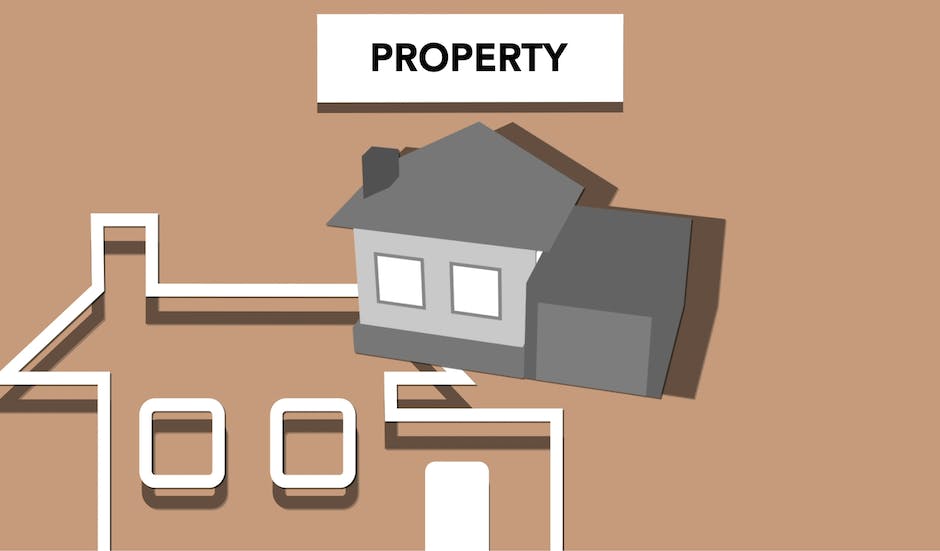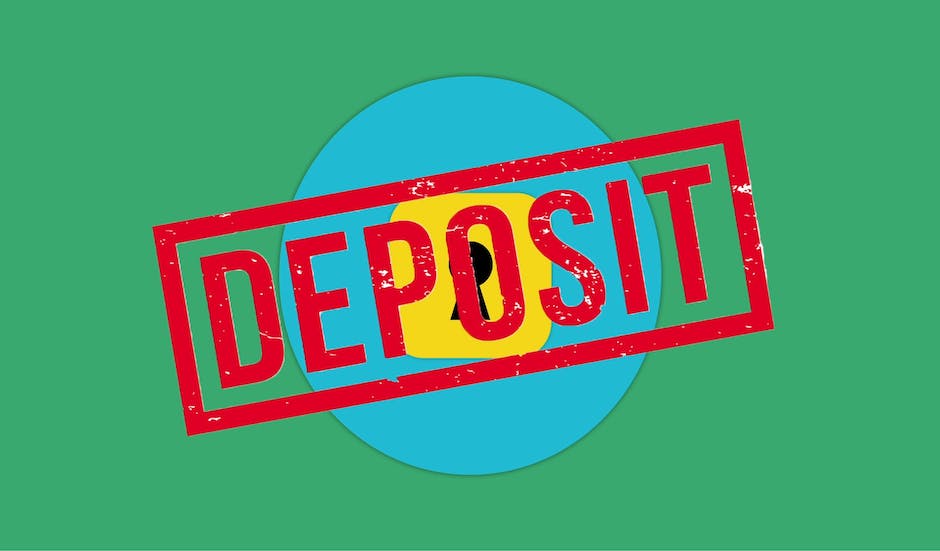
As the world of finance continues to evolve, so do the strategies for growing wealth and diversifying investment portfolios. One such innovation that has gained considerable attention in recent years is real estate tokenization. Traditionally, investing in real estate required substantial financial resources and extensive legal and administrative processes. However, with the advent of blockchain technology, the concept of tokenization has emerged, revolutionizing the way individuals and businesses invest in real estate.
Real estate tokenization refers to the process of digitizing ownership rights and assets through blockchain technology. By breaking down real estate assets into smaller, easily tradable units known as tokens, investors can gain fractional ownership and access to a wider range of real estate opportunities. This transformation allows for increased liquidity, lower entry barriers, and greater transparency compared to conventional real estate investment methods.
The benefits of real estate tokenization go beyond accessibility and flexibility. Investors can now diversify their portfolios by having exposure to multiple properties across different geographical locations and types of real estate. Moreover, tokenization enables individuals to enter the real estate market with smaller investments, making it more inclusive and appealing to a broader range of investors.
Another significant advantage of real estate tokenization is the potential for increased liquidity. In traditional real estate investments, selling a property can take significant time and effort, often resulting in illiquid assets. Tokenization provides a platform where property owners can trade their tokens quickly and efficiently. This added liquidity allows investors to exit positions when needed, enhancing their ability to manage their portfolios effectively.
Furthermore, real estate tokenization promotes transparency and security. By leveraging the immutability and traceability of blockchain technology, investors can have a clear view of property ownership, revenue distribution, and the overall performance of their investments. This transparency reduces the risk of fraudulent activities and provides investors with greater confidence in their decision-making.
In conclusion, real estate tokenization presents a new frontier for investors seeking to go beyond conventional investing methods. With improved accessibility, increased liquidity, diversification opportunities, and enhanced transparency, this innovative approach to real estate investment is poised to reshape the industry. As more individuals and businesses explore the benefits of real estate tokenization, it is crucial to stay informed and consider how this strategy aligns with their long-term financial goals.
– Importance of exploring innovative financial strategies in today’s investment landscape

The traditional investment landscape is constantly evolving, and staying ahead of the curve has become imperative for savvy investors. In today’s dynamic economy, exploring innovative financial strategies is of utmost importance to maximize investment potential and generate substantial returns. One such strategy that has gained traction in recent years is real estate tokenization.
Real estate tokenization involves digitizing ownership of a property and creating digital tokens that represent fractional ownership. This innovative approach not only allows investors to diversify their portfolios but also offers several benefits that go beyond conventional investing. First and foremost, real estate tokenization provides an opportunity for investors to access previously inaccessible markets. With fractional ownership, even individual investors can gain exposure to premium properties and high-value assets that were once restricted to institutional investors or wealthy individuals.
Furthermore, real estate tokenization offers enhanced liquidity as compared to traditional real estate investments. Unlike traditional property investments that may require a lengthy selling process, tokenized real estate assets can be traded on online platforms, so investors can buy and sell their tokens more easily and quickly. This increased liquidity allows investors to seize opportunities and react swiftly to market changes.
Another advantage of real estate tokenization is the potential for increased transparency and security. The use of blockchain technology ensures that all transactions and ownership transfers are recorded securely and verifiably. This transparency enhances investor trust and reduces the risk of fraud or malpractice. Additionally, the smart contract capabilities of blockchain technology enable automated execution of investment agreements, eliminating the need for intermediaries and reducing associated costs.
Investors also benefit from the potential for increased fractional ownership flexibility through real estate tokenization. Fractional ownership allows investors to diversify their investments across multiple properties, lowering the risk associated with holding a single property. Moreover, token holders may also benefit from future developments and improvements made to the property, leading to potential appreciation of their tokenized asset.
Embracing innovative financial strategies like real estate tokenization can open up a world of opportunities for investors. By going beyond conventional investing, individuals and institutions alike can diversify their portfolios, increase liquidity, enhance transparency, and maximize their potential returns. In this ever-changing investment landscape, exploring and adopting such strategies is essential for long-term success and staying ahead of the competition.
– Overview of real estate tokenization and its potential benefits

Real estate tokenization is revolutionizing the traditional world of investing by introducing a new and innovative way for individuals and businesses to participate in the real estate market. This process involves converting real estate assets into digital tokens that can be bought, sold, and traded on blockchain platforms.
One of the key benefits of real estate tokenization is increased liquidity. Traditionally, investing in real estate has required large capital commitments and often involves illiquid assets that are difficult to sell or transfer. However, tokenization allows for fractional ownership, meaning that investors can purchase smaller portions of a property, making it more accessible to a wider range of investors.
By digitizing real estate assets, tokenization also enables a global market for real estate investment. Investors can now easily buy and sell tokens representing properties without being limited by geographical boundaries. This opens up opportunities for diversification and allows investors to participate in real estate markets that were previously out of reach, thereby potentially increasing their overall investment returns.
Additionally, real estate tokenization brings transparency to the investment process. Each token represents a clearly defined share of a property, and the blockchain technology ensures that the ownership records are secure and unalterable. This level of transparency reduces the potential for fraud and increases trust in the investment process, making it more attractive to potential investors.
Furthermore, real estate tokenization can also lower barriers to entry and provide more flexibility in investment options. Fractional ownership allows investors to diversify their portfolios by investing in multiple properties with various risk profiles. Additionally, tokenization can facilitate access to real estate projects that were previously reserved for institutional investors, providing individuals with more opportunities to participate in lucrative real estate ventures.
Overall, real estate tokenization has the potential to disrupt the traditional investing landscape by offering increased liquidity, global accessibility, transparency, and more diverse investment options. As more investors and businesses embrace this innovative approach, it will undoubtedly reshape the real estate industry and open up new avenues for financial growth and opportunities.
Understanding Real Estate Tokenization

The concept of real estate tokenization has gained significant traction in recent years, revolutionizing the way investors approach the real estate market. Understanding real estate tokenization is crucial for any investor looking to diversify their portfolio and explore innovative financial strategies.
Real estate tokenization refers to the process of dividing a real estate asset into smaller digital tokens, each representing a fractional ownership of the property. These tokens are then issued on blockchain platforms, providing investors with a transparent and secure way to invest in real estate.
One of the key advantages of real estate tokenization is the increased accessibility it offers. Traditionally, real estate investments required large capital investments, making it difficult for individual investors to enter the market. However, with tokenization, investors can now purchase fractions of properties, making real estate investment more affordable and inclusive.
Tokenization also brings liquidity to the traditionally illiquid real estate market. By converting real estate assets into tokens, investors can easily buy, sell, and trade their ownership stakes on various cryptocurrency exchanges. This flexibility allows investors to react quickly to market trends and seize investment opportunities without the limitations of conventional real estate transactions.
In addition to accessibility and liquidity, real estate tokenization offers enhanced transparency and security. Blockchain technology ensures that all transactions and ownership records are recorded immutably, eliminating the need for intermediaries and reducing the risk of fraud. This increased transparency provides investors with greater confidence in the investment process and fosters trust in the market.
Furthermore, real estate tokenization opens up avenues for fractional ownership, enabling investors to diversify their portfolios across multiple real estate projects. Instead of allocating a significant portion of their funds to a single property, investors can now spread their investments across a range of properties, minimizing risk and optimizing returns.
As with any investment, it is essential for investors to conduct thorough due diligence before participating in real estate tokenization. Understanding the legal and regulatory frameworks surrounding tokenized assets, evaluating the underlying property’s value and potential, and assessing the credibility of the platform offering the tokens are critical steps in making informed investment decisions.
In conclusion, real estate tokenization presents a game-changing opportunity for investors to go beyond conventional investing strategies. By leveraging blockchain technology, investors can access previously untapped investment opportunities, benefit from enhanced liquidity and transparency, and diversify their portfolios effectively. Understanding real estate tokenization is the first step towards harnessing the potential of this innovative financial strategy.
– Definition of tokenization in the context of real estate investment

Tokenization in the context of real estate investment refers to the process of converting a property, asset, or a portion of it into digital tokens. These tokens are then stored and traded on a blockchain network, providing investors with direct ownership and exposure to the underlying real estate asset.
Traditionally, investing in real estate has involved large sums of money and limited access for individual investors. However, with the advent of real estate tokenization, barriers to entry have significantly reduced, democratizing the investment landscape.
Through tokenization, real estate assets can be divided into fractional shares, allowing investors to purchase and own smaller portions of high-value properties. This fractional ownership makes real estate investment more accessible, providing the opportunity for diversification and liquidity.
Benefits of real estate tokenization extend beyond accessibility. Tokenization increases transparency as all transactions are recorded on the blockchain, enabling investors to view property details, ownership history, and transaction records in a secure and immutable manner. This level of transparency minimizes fraud and enhances trust between investors and asset managers or developers.
Moreover, tokenization enhances liquidity by creating a secondary market for real estate assets. Since tokens can be easily bought and sold on the blockchain, investors have the flexibility to exit their investment or trade their tokens without the need for intermediaries. This newfound liquidity reduces the holding period of investments, making it easier to rebalance portfolios and capitalize on emerging market trends.
Real estate tokenization also offers several advantages in terms of financial strategies. For instance, investors can diversify their portfolios by investing in various types of real estate assets across different locations, without the need for large capital outlays. Additionally, investors can benefit from rental income or potential property appreciation through dividends or profit-sharing mechanisms embedded in the tokens.
However, it is essential to note that while real estate tokenization presents significant opportunities, it is not without risks. Investors should carefully evaluate the underlying asset, token structure, and the reputation of the token issuer or platform before making any investment decisions.
In conclusion, real estate tokenization has revolutionized the way people invest in properties. By breaking down high-value assets into fractional shares and leveraging blockchain technology, investors can gain access to a previously exclusive market. As this digital disruption continues to reshape the real estate industry, it is crucial for investors to stay informed about the evolving landscape and explore the potential benefits and risks of this innovative investment strategy.
– How blockchain technology enables tokenization and increases accessibility

Real estate tokenization is an innovative financial strategy that is gaining momentum in the investment world. With the advent of blockchain technology, it is now possible to convert traditional real estate assets into digital tokens, making them more accessible to a wider range of investors.
Blockchain technology plays a crucial role in enabling tokenization by providing a transparent and secure platform for the creation and management of digital tokens. By recording every transaction on a decentralized ledger, blockchain ensures the immutability and integrity of the tokens, reducing the risk of fraud or manipulation.
One of the key advantages of tokenization is its ability to fractionalize real estate assets. Traditional real estate investment often requires a significant amount of capital, making it inaccessible to smaller investors. However, through tokenization, a single property can be divided into smaller units or tokens, allowing investors to purchase a fraction of the asset rather than the entire property. This fractional ownership model opens up new avenues for investment, enabling individuals with limited resources to participate in the real estate market.
Tokenization also increases liquidity in the real estate market. Traditionally, it could take months or even years to sell a property. However, with tokenization, investors can easily trade their digital tokens on blockchain-based platforms. This instant liquidity enhances the efficiency of the real estate market, allowing investors to quickly convert their assets into cash when needed.
Moreover, real estate tokenization also offers benefits in terms of transparency and accessibility. Blockchain provides a decentralized platform where investors can access comprehensive information about the underlying real estate assets, including property details, financial performance, and legal documentation. This transparency builds trust among investors and reduces the information asymmetry that often exists in traditional real estate investments.
Additionally, tokenization opens up investment opportunities beyond geographical boundaries. Investors can now diversify their portfolios by investing in real estate assets globally without the need for physical presence or complex legal procedures. This globalization of real estate investment not only broadens opportunities for investors but also contributes to economic development in various regions by attracting foreign capital.
In conclusion, real estate tokenization powered by blockchain technology is revolutionizing the way investors approach real estate investment. The fractional ownership model, increased liquidity, transparency, and global accessibility are transforming the dynamics of the real estate market. As this technology continues to evolve, more investors are expected to embrace tokenization as a viable financial strategy, further expanding the democratization of real estate investment.
– Examples of successful real estate tokenization projects

Successful Real Estate Tokenization Projects
Real estate tokenization is gaining momentum in the financial world. As more real estate ventures embrace blockchain technology, numerous successful projects have emerged. These groundbreaking initiatives have not only revolutionized the way properties are traded but have also showcased the immense potential of real estate tokenization. Let’s take a closer look at some notable examples:
1. The St. Regis Aspen Resort: In 2018, a luxury hotel in Colorado became one of the first properties globally to be tokenized. The St. Regis Aspen Resort was divided into digital tokens, allowing investors to own fractional shares of the prestigious establishment. The initiative received overwhelming response from investors looking to gain exposure to the hospitality industry, while also receiving access to potential financial gains through the property’s revenue.
2. ParkinGO: In Italy, ParkinGO, a leading provider of airport parking services, launched a successful tokenized real estate project. By securitizing a portion of the company’s parking spaces and facilities, they provided investors with an opportunity to own a stake in the highly lucrative airport parking industry. The project enabled ParkinGO to raise capital while offering investors a chance to bet on the growing travel market.
3. The Hub at Columbia: This student housing project in the United States underwent tokenization, allowing for the fractional ownership of individual units. The Hub at Columbia leveraged blockchain technology to appeal to a wide range of investors, from those interested in residential real estate to institutional players seeking exposure to the student housing sector. The project demonstrated how tokenization can create diverse investment options within the real estate market.
4. The Aspire Fund: Throughout Europe, the Aspire Fund has been attracting investors seeking to diversify their portfolios through tokenized real estate assets. The fund acquires, manages, and tokenizes attractive commercial properties across Europe, enabling investors to gain exposure to prime real estate with ease and transparency. Investors can purchase tokens in the fund and benefit from potential capital appreciation of the underlying properties.
5. The Squint/Opera Building: This London-based creative studio initiated a tokenization project for their own property, the Squint/Opera Building. By fracturing the ownership of the building, they were able to raise funds for expansion while retaining control of their workspaces. The project highlighted how tokenization can both unlock capital and help businesses maintain ownership of their physical assets.
These examples illustrate the vast range of possibilities that real estate tokenization offers. By digitizing real estate assets, both traditional and non-traditional investors have access to new investment opportunities that were previously unavailable. As more successful projects emerge, the potential for further innovation and growth within the realm of real estate tokenization becomes increasingly compelling.
Advantages of Real Estate Tokenization

Real Estate Tokenization is rapidly emerging as a game-changing financial strategy in the investment world. As technology continues to evolve, traditional investment opportunities are being redefined, and real estate tokenization is at the forefront of this transformation. This innovative approach leverages blockchain technology to fractionalize real estate assets, allowing investors to purchase tokens that represent fractional ownership in properties.
One of the key advantages of real estate tokenization is the increased liquidity it offers to investors. Traditionally, investing in real estate involves a significant commitment of capital and a long-term holding period. With tokenization, investors have the ability to buy and sell tokens representing shares in real estate assets more easily and quickly. This opens up real estate investment opportunities to a wider range of investors, including those with limited capital or those seeking more flexibility in their investment portfolio.
Additionally, real estate tokenization provides investors with increased transparency and security. Each transaction made on the blockchain is recorded and immutably stored, providing a transparent audit trail that can be verified by all participants. This eliminates the need for intermediaries and reduces the potential for fraud or manipulation. The technology also ensures that ownership rights are securely and accurately represented by the tokens, offering investors greater peace of mind.
Real estate tokenization also allows for the fractionalization of larger properties, enabling investors to access attractive real estate assets that may have been traditionally out of reach. By dividing properties into smaller units through tokenization, investors can diversify their portfolios and reduce risk. Furthermore, tokenization allows for the creation of investment opportunities that cater to specific preferences or investment goals. For instance, investors can choose to invest in residential, commercial, or even specialized properties such as hotels or warehouses, based on their individual preferences and risk appetite.
Lastly, tokenization opens up avenues for global investment by breaking down geographical barriers. Investors can participate in real estate markets anywhere in the world without the constraints of physical proximity. This provides an opportunity to capitalize on growing markets or attractive investment prospects in different countries, increasing potential returns and diversification options.
In conclusion, real estate tokenization offers numerous advantages that are reshaping the way investors approach real estate investment. Increased liquidity, transparency, security, diversification, and global accessibility are just some of the benefits that make real estate tokenization an enticing avenue for both individual and institutional investors. As this digitalized approach gains more traction, it is important for potential investors to understand how real estate tokenization can enhance their financial strategies and offer new opportunities in today’s dynamic investment landscape.
– Fractional ownership: Breaking down large properties into manageable shares

Fractional ownership is a groundbreaking concept in the real estate industry that allows investors to break down large properties into manageable shares. Traditionally, investing in real estate required a significant amount of capital, making it inaccessible to individual investors. However, through fractional ownership, this barrier is effectively removed.
By dividing a property into fractional ownership shares, investors can now participate in the real estate market and benefit from the potential profitability of large-scale properties. This innovative approach enables individuals to invest in high-value properties without having to commit to purchasing the entire property outright.
One of the key advantages of fractional ownership is the diversification it offers. Instead of pouring all their funds into a single property, investors can now allocate their capital across multiple properties, thereby reducing their overall risk. This diversification allows for a more balanced portfolio, protecting investors from potential downturns in specific markets.
Furthermore, fractional ownership provides increased liquidity when compared to traditional real estate investment. Historically, selling a property has been a time-consuming and arduous process. However, with fractional ownership, investors have the flexibility to sell their shares without the need to find a buyer for the entire property. This enhanced liquidity empowers investors to make strategic decisions regarding their investments and easily access their funds when needed.
Additionally, fractional ownership opens up investment opportunities in locations that may have been previously inaccessible. Investors are no longer restricted by geographical limitations, as they can participate in properties located in different cities, states, or even countries. This not only expands the potential market for investment but also allows investors to take advantage of emerging markets and seize profitable opportunities globally.
Overall, fractional ownership is revolutionizing the real estate industry by democratizing access to investment opportunities. It aligns perfectly with the ethos of the modern investor – one who seeks flexibility, diversification, and growth potential. By breaking down large properties into manageable shares, fractional ownership is empowering individuals to embrace a new era of real estate investing, where the barriers that once existed are overcome, and financial strategies evolve to unlock greater possibilities for growth and success.

